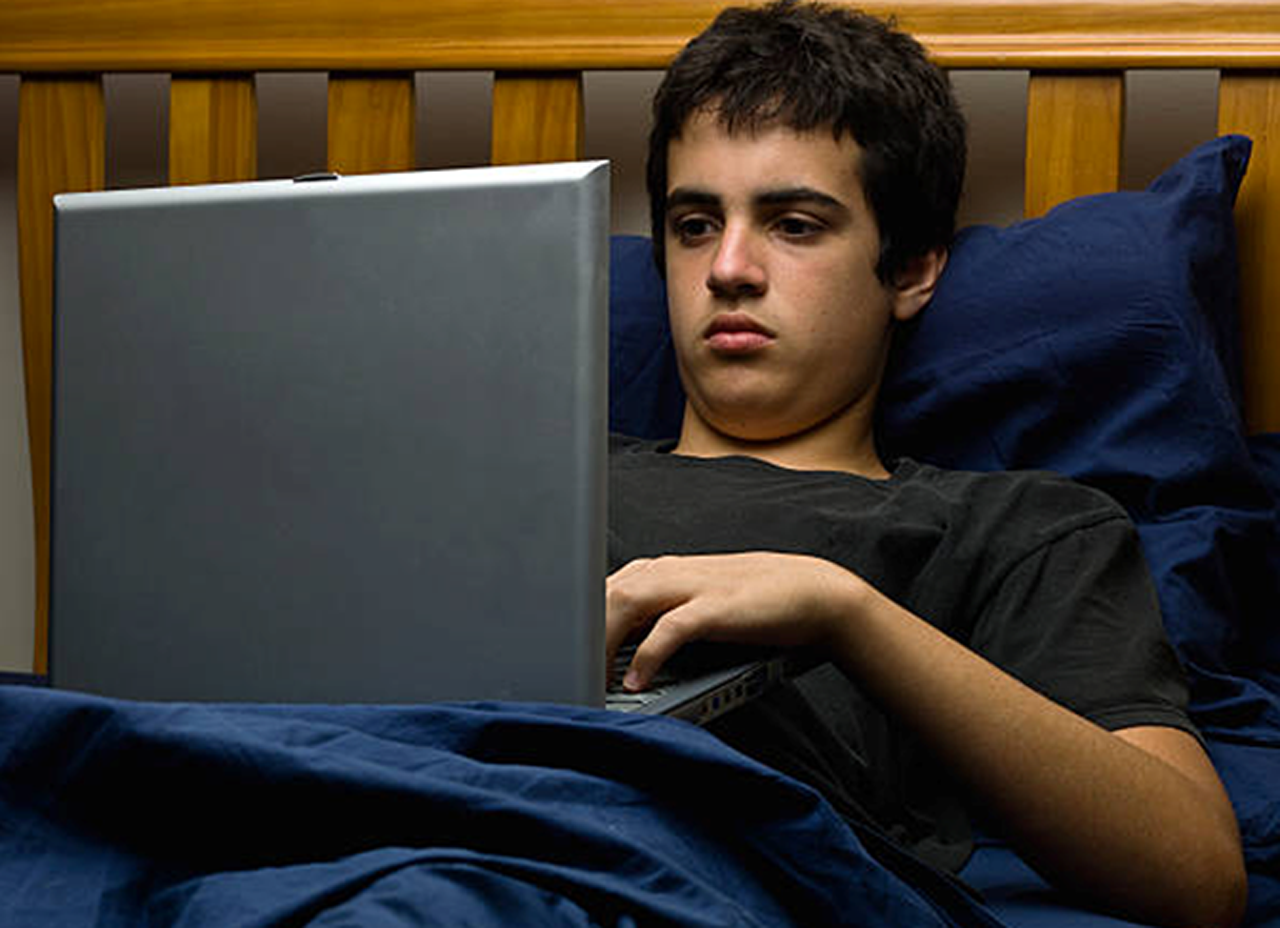Teenagers using screens before bed adds an extra half an hour before they are able to fall asleep, study finds

Every hour teenagers spend playing video games, texting friends or scrolling through social media takes them ten minutes longer to go to sleep.
Doing so before bed meanwhile is even worse – adding on an extra half an hour before kids are able to fall asleep, a study has found.
Lack of sleep among children has been shown to increase the risk of obesity, learning problems, and mental health issues.
Researchers at Penn State University in the US first looked at the screentime of 475 children aged 15 for at least three days each.
On average, two hours a day were spent chatting with friends over email, texting, instant messaging, or social media.
Slightly less time — about 1.3 hours per day — was devoted to playing video games.
Participants spent around 77 per cent of the hour before going to bed on some form of this so-called ‘interactive’ screentime.
Their sleep was then analysed for one week using accelerometers, with participants found to stay in bed an average 7.8 hours per night.
Researchers found that for every hour throughout the day teens spent communicating with friends or playing video games, they fell asleep about 11 minutes or nine minutes later respectively.
Those who did so in the hour before bed struggled the most, with their sleep delayed by around 30 minutes.
Around a third of children in the UK aged between seven and 16 struggle to get to sleep during the week, according to the NHS.
Experts have warned the lack of sleep and the rise in social media use and video games before bedtime can cause anxiety and depression among teenagers.
The latest study – published in the Journal of Adolescent Health – found participants also spent on average 1.7 hours watching TV or videos online and less than an hour a day surfing the internet.
This ‘passive’ screen time however was found to have ‘no significant associations’ with a lack of sleep, according to lead author Dr David Reichenberger, suggesting it could be because these activities were likely less mentally stimulating.
He said: ‘If teens typically play video games for an hour each day, but one day a new game comes out and they play for four hours, that’s three additional hours more than they typically play
‘So, that means they could have 15 minutes of delayed sleep timing that night. For a child, losing 15 minutes of sleep at night is significant.
‘It’s especially difficult when they have to get up in the morning for school; if they’re delaying their sleep, they can’t make up for it in the morning.
‘Without adequate sleep, kids are at increased risk of obesity, as well as impaired cognition, emotion regulation and mental health.’






